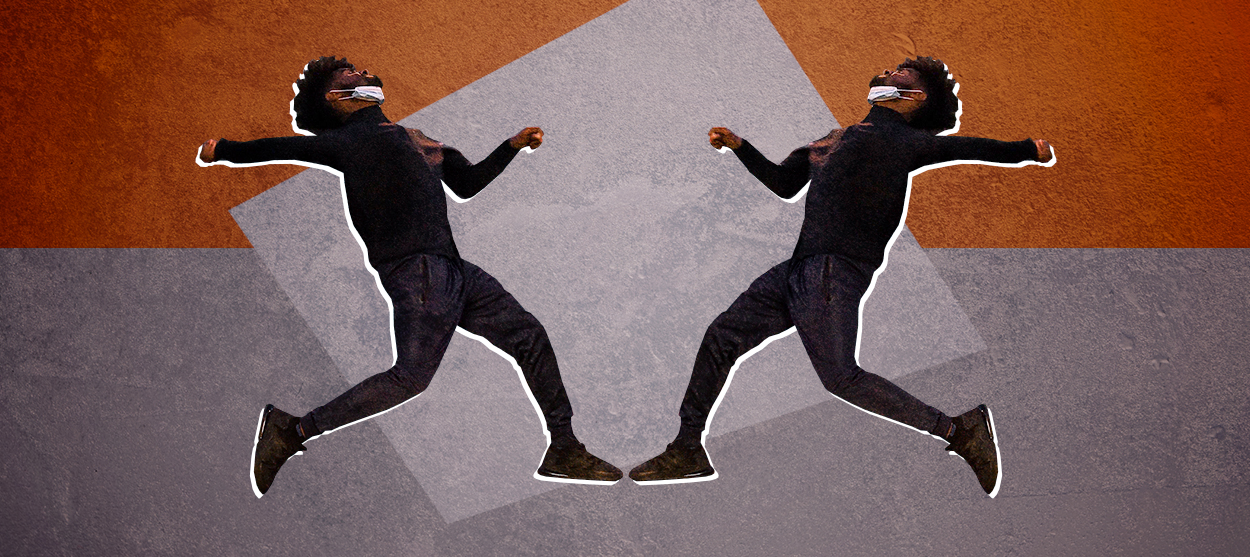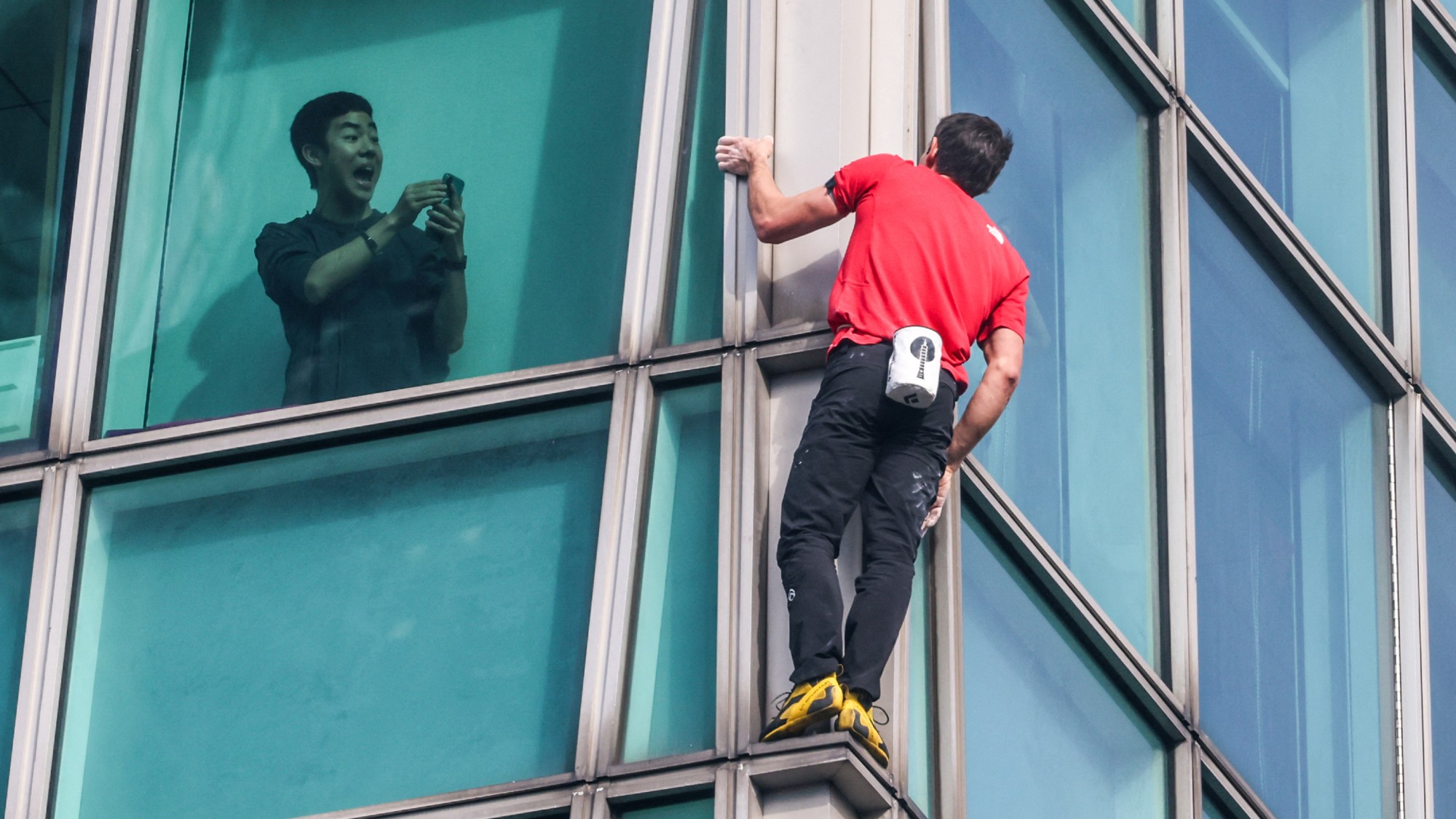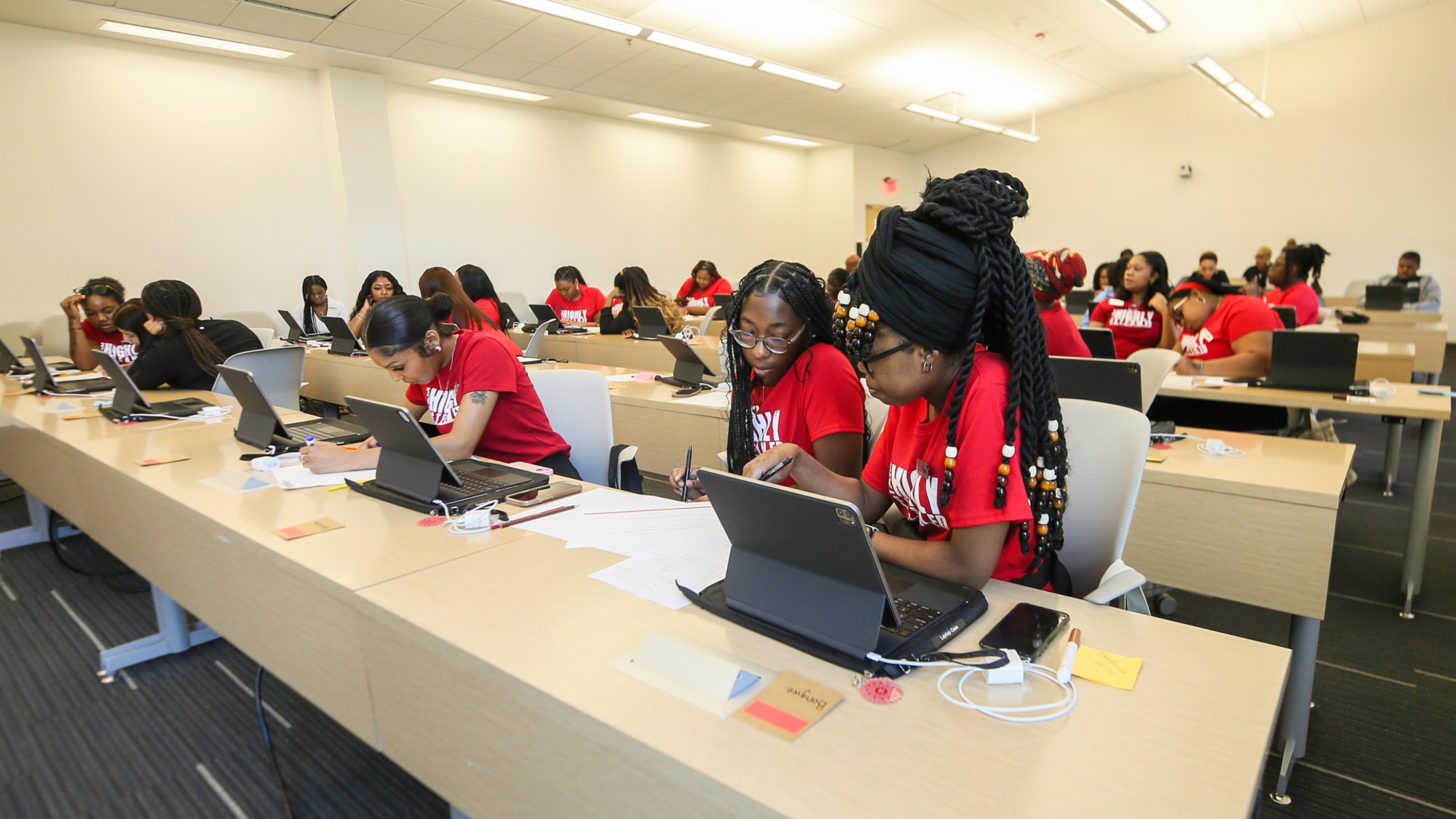Don't willfully ignore the complexity of what's happening in America right now
Reality is more complicated than the narrative of righteous protesters engaged in a running battle with a malevolent president and police officers


A free daily email with the biggest news stories of the day – and the best features from TheWeek.com
You are now subscribed
Your newsletter sign-up was successful
Over the past three months, I've repeatedly taken aim at the irresponsible reaction of some on the right to the pandemic. But now it's the left (including some journalists and academics) that's doing the country (and the world) a disservice — by abandoning even the pretense of perspective about what's happening in the United States. Understandably upset by the president's photo-op stunt and incendiary speech in Washington, D.C.'s Lafayette Park on Monday evening, journalists ran for the barricades, declaring the imminent end of American democracy and the advent of fascism in America.
The truth is more complex, and possibly even more disturbing, than that.
Americans are prone to the Christian heresy of Manichaeism, dividing the world into children of light and children of darkness. Now, thanks to intense partisan polarization that's encouraged by monomaniacal activists, a president who sees political advantage in fostering division, and the siloing effects of social media, this tendency has intensified. Journalists and other commentators aren't immune to the trend. They also contribute to it when they abandon any effort at capturing the complicated reality of what's happening in a fluid nationwide event and instead advance a story of righteous protesters engaged in a running battle with a malevolent president and police officers. Trump and other sinners on one side, civic saints championing the cause of justice on the other.
The Week
Escape your echo chamber. Get the facts behind the news, plus analysis from multiple perspectives.

Sign up for The Week's Free Newsletters
From our morning news briefing to a weekly Good News Newsletter, get the best of The Week delivered directly to your inbox.
From our morning news briefing to a weekly Good News Newsletter, get the best of The Week delivered directly to your inbox.
American reality isn't contained in either of those polarized, idealized or demonized, positions. It is found in the complicated interplay between thousands of variations on those mostly imagined pure forms.
American reality is George Floyd's life being viciously snuffed out by the knee of a Minneapolis cop.
But it's also just nine unarmed African Americans being shot and killed by police last year in a country of 330 million people. That's nine too many, but not quite the evidence of systematic race-based police killings that one might expect given the rhetoric of the past week. (Nineteen unarmed whites were gunned down by police last year.)
American reality is the president of the United States ordering Lafayette Park forcibly cleared of peaceful protesters and threatening to invoke the Insurrection Act (as other presidents have done, for a range of reasons) to quell widespread looting and violence.
A free daily email with the biggest news stories of the day – and the best features from TheWeek.com
But it's also widespread looting and violence targeting everything from high-end shops and national chains in midtown Manhattan to minority-owned businesses in communities across the country.
American reality is police (and baseball-bat wielding vigilantes and freelance maniacs) attacking journalists and protesters.
But it's also cops being shot and deliberately run over in the street.
It's possible to try and freeze time around any of these events and affix blame for the unjust act. If you do this enough times around enough similar events, it's quite easy to construct a simple and satisfying narrative that will confirm your worst nightmares about evildoers on the other side. And sometimes that story will even be true, since there's always more than enough evil at large in the world.
But the truth about the country as a whole can never be captured in such an artificially frozen and morally tidy tableau. On the contrary, it's far more likely to feed the agitated frenzy unfolding in the true reality in which we all now find ourselves.
We Americans have been teaching ourselves to hate each other for years. For a long time, the hatred mostly lived and was mostly cultivated online, where millions of us have come to enact and re-enact a digital civil war every day. But now, thanks to nearly three months of claustrophobic boredom in lockdown, severe economic hardship, the constant needling of a horribly divisive president, a troublemaking impulse toward old-fashioned lawlessness, and longstanding, justified grievances against racial injustice that got distilled into the lit-match of a heartbreaking and appalling YouTube video — all of that has produced the deeply disconcerting reality we see all around us, of a formerly digital civil war finally spilling out into the real world.
We are a country tearing itself to pieces.
It isn't a civil war with sides cleanly demarcated by territory in physical space, like Civil War of the 19th century, but more a burgeoning anarchy, pitting neighbor against neighbor, neighborhood against neighborhood, city and suburb against small town and countryside. To those inclined to say that most Americans remain on the sidelines today, despite protests roiling more than 140 cities and towns across the nation, this was also true from 1861-1865, when "only" 2 percent of the population died in the fight. It took the remaining 98 percent of the country decades to recover and come to terms with the trauma.
There's still reason to hope that the (literal and figurative) fires raging on our streets can be contained and snuffed out, the mutual suspicion and animosity muted or shunted off once again into virtual space. Tuesday morning's speech by presumptive Democratic presidential nominee Joe Biden served as a reminder of how a president talks, and is supposed to talk, at times like this, modeling empathy and urging civic healing. Whether his remarks are a premonition of a brighter future or they end up as a fading, nostalgic echo of a form of ennobling politics now beyond our reach is something we will only be able to begin answering after votes are cast, counted, and accepted as valid in November.
An awful lot can happen in five months.
Will that time be spent casting our fellow citizens into moral outer darkness? Will journalists and academics keep publicizing evidence that confirms their priors while ignoring facts that complicate them? Or will they work to capture the multisided complexity of a suffering nation? Though we would be foolish to expect better from our malignant president, will his party and its media cheerleaders continue to help him to do his dirty work of division? Or will they quietly distance themselves from his daily provocations?
The very least we can do is make a concerted effort to legitimize the pain and anger of African Americans, while defending the constitutionally protected right to protest. But this must also be paired with an unconditional condemnation of looting, stealing, smashing, burning, and destroying lives and property — none of which is protest, and all of which will succeed only in further rending the social fabric while giving would-be authoritarians pretext to crack down in the name of the public good.
If that much proves impossible for us to manage, we will have failed. And in that failure, we will have demonstrated before the world that we did all of this to ourselves.
Damon Linker is a senior correspondent at TheWeek.com. He is also a former contributing editor at The New Republic and the author of The Theocons and The Religious Test.
-
 ‘Restaurateurs have become millionaires’
‘Restaurateurs have become millionaires’Instant Opinion Opinion, comment and editorials of the day
-
 Earth is rapidly approaching a ‘hothouse’ trajectory of warming
Earth is rapidly approaching a ‘hothouse’ trajectory of warmingThe explainer It may become impossible to fix
-
 Health insurance: Premiums soar as ACA subsidies end
Health insurance: Premiums soar as ACA subsidies endFeature 1.4 million people have dropped coverage
-
 ‘The forces he united still shape the Democratic Party’
‘The forces he united still shape the Democratic Party’Instant Opinion Opinion, comment and editorials of the day
-
 ‘Those rights don’t exist to protect criminals’
‘Those rights don’t exist to protect criminals’Instant Opinion Opinion, comment and editorials of the day
-
 ‘The mark’s significance is psychological, if that’
‘The mark’s significance is psychological, if that’Instant Opinion Opinion, comment and editorials of the day
-
 ‘The West needs people’
‘The West needs people’Instant Opinion Opinion, comment and editorials of the day
-
 ‘The censorious effect is the same, even if deployed covertly’
‘The censorious effect is the same, even if deployed covertly’Instant Opinion Opinion, comment and editorials of the day
-
 Vietnam’s ‘balancing act’ with the US, China and Europe
Vietnam’s ‘balancing act’ with the US, China and EuropeIn the Spotlight Despite decades of ‘steadily improving relations’, Hanoi is still ‘deeply suspicious’ of the US as it tries to ‘diversify’ its options
-
 ‘The sport is still run on a shoestring’
‘The sport is still run on a shoestring’Instant Opinion Opinion, comment and editorials of the day
-
 ‘We know how to make our educational system world-class again’
‘We know how to make our educational system world-class again’Instant Opinion Opinion, comment and editorials of the day
